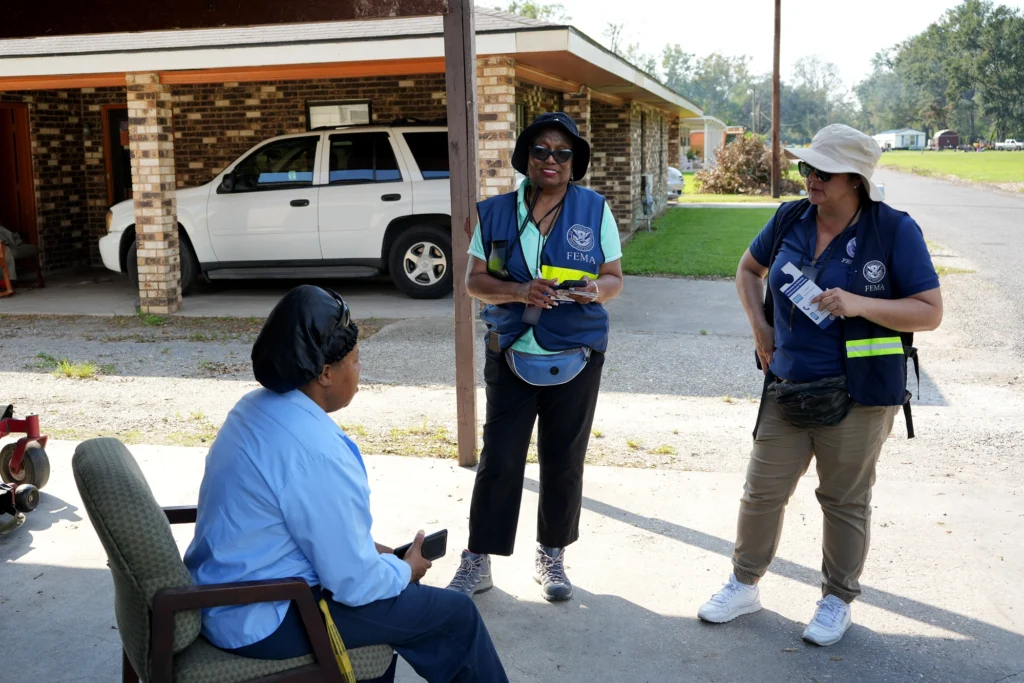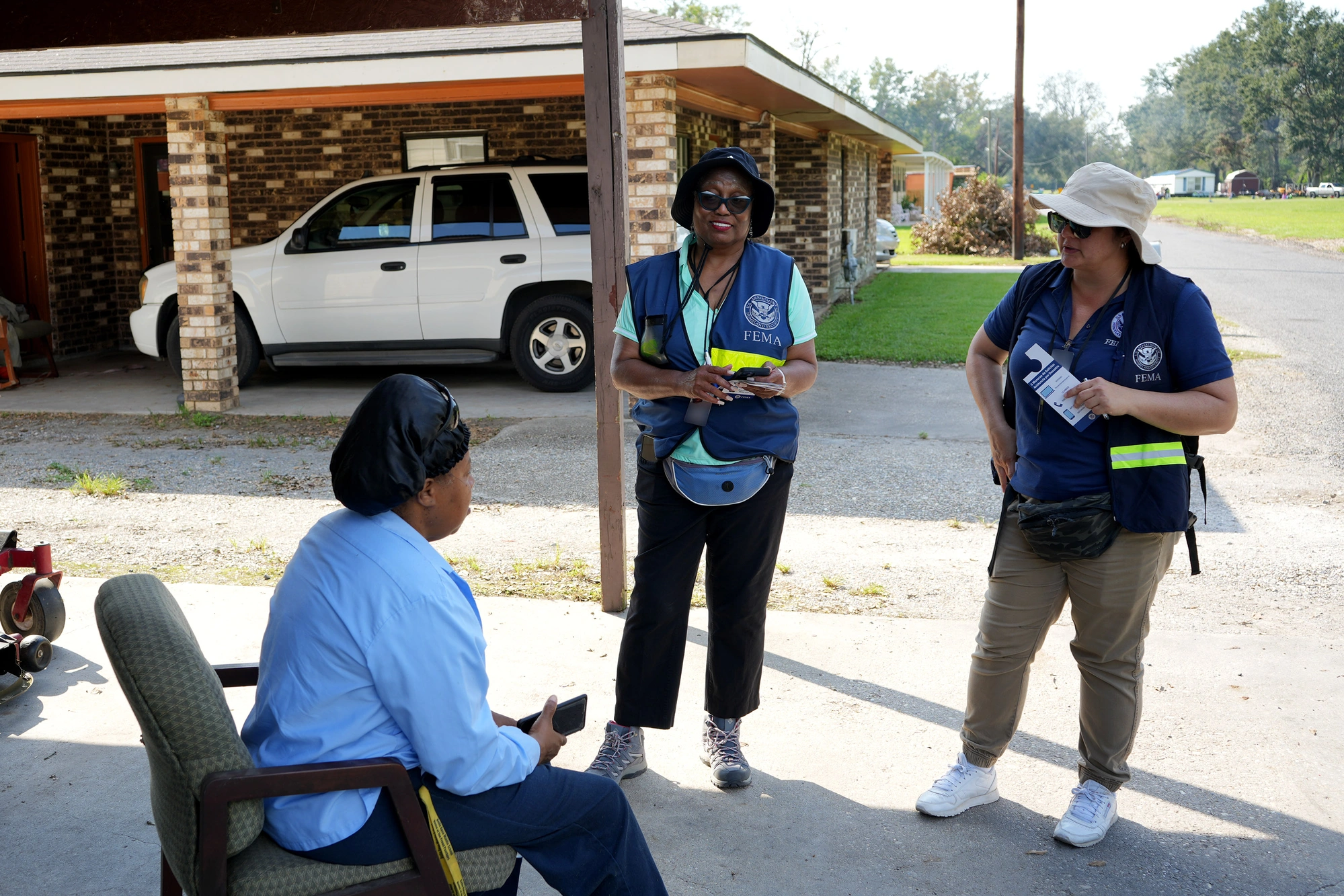The U.S. Federal Emergency Management Agency (FEMA) is once again in the spotlight as it faces mounting pressure from two new hurricanes, Milton and Helene.

These storms are not only wreaking havoc in their paths but also stretching FEMA's already strained resources and exposing deeper systemic issues within the nation's emergency response system.
The agency is currently grappling with multiple obstacles, from a lack of sufficient funding to a growing disinformation campaign targeting its operations, and the weight of past failures in managing large-scale disasters continues to burden its effectiveness.
The arrival of these hurricanes couldn't have come at a worse time, adding to FEMA's list of growing challenges.
A Shortfall of Resources: FEMA’s Funding Crisis
One of the primary challenges facing FEMA in the wake of Hurricanes Milton and Helene is a significant funding shortfall.
The agency, tasked with preparing for and responding to disasters, finds itself with limited financial resources just when they are most needed.
While federal agencies are often subject to budget constraints, the timing of these two hurricanes, combined with ongoing recovery efforts in other areas, has left FEMA scrambling to allocate its remaining resources effectively.
FEMA's financial limitations have come to the forefront as the agency tries to juggle the needs of multiple regions affected by natural disasters.
With large portions of the U.S. still recovering from previous hurricanes and wildfires, the demand for FEMA's aid and expertise is at an all-time high.
Yet, without adequate funding, FEMA may find it difficult to meet the needs of those affected by Milton and Helene, leaving vulnerable populations at risk.
The timing of the funding crisis couldn't be worse.
Many communities rely on FEMA to provide immediate assistance, including shelter, food, and emergency medical care, in the aftermath of a disaster.
If the agency can't fulfill its duties because of financial constraints, it could lead to devastating consequences for affected populations, especially in poorer or more isolated regions where local resources are scarce.
Disinformation and Political Pressure: FEMA’s Reputation Under Attack
As if financial strain weren't enough, FEMA is also being targeted by a politically fueled disinformation campaign, which threatens to undermine the public's trust in the agency's ability to respond effectively.
In recent years, the rise of social media and the rapid spread of false or misleading information has made it more difficult for FEMA to communicate accurate and timely updates during emergencies.
The spread of disinformation can have real-world consequences, as people may make ill-informed decisions during a disaster, potentially putting themselves or others in harm's way.
In the case of Hurricanes Milton and Helene, false claims about the government's response have already begun circulating online, with some suggesting that FEMA is deliberately withholding resources from certain communities or that the agency is mismanaging funds.
These rumors, while baseless, have gained traction in some circles, further complicating FEMA's efforts to coordinate a cohesive response.
Political pressure adds yet another layer of difficulty for FEMA.
Elected officials often face intense scrutiny from their constituents during natural disasters, and they, in turn, put pressure on FEMA to act quickly and decisively.
While accountability is crucial for any government agency, this kind of political pressure can sometimes lead to rushed decisions that may not be in the best interest of long-term recovery efforts.
Furthermore, the politicization of disaster response often creates divisions within the agency itself, as leaders must navigate not only the logistical challenges of responding to a storm but also the political landscape in which they operate.
FEMA's mission is to serve all Americans, regardless of political affiliation, but when the agency is pulled into political disputes, it can hamper its ability to operate efficiently.
Burdened by Past Failures: FEMA’s Legacy of Mismanagement
FEMA's reputation has been significantly impacted by its past failures in managing large-scale disasters, most notably its handling of Hurricane Katrina in 2005.
The agency was widely criticized for its slow and ineffective response to the crisis, and in the years since, FEMA has worked to rebuild its image and implement reforms to improve its disaster response capabilities.
However, the shadow of Katrina still looms large, and every new disaster is an opportunity for critics to question whether FEMA has truly learned from its mistakes.
Hurricanes Milton and Helene represent a new test for FEMA, and while the agency has made strides in improving its response capabilities, it is still burdened by the weight of its past missteps.
Each new disaster brings with it fresh scrutiny, and FEMA must work hard to prove that it is up to the challenge.
Unfortunately, the combination of limited resources, political pressure, and a disinformation campaign only makes this task more difficult.
The agency’s responses to more recent storms, such as Hurricanes Harvey and Maria, were also met with criticism.
While there were improvements in certain areas, such as better coordination with local authorities and faster deployment of resources, there were still significant shortcomings.
In Puerto Rico, for instance, FEMA was accused of providing inadequate support in the aftermath of Hurricane Maria, leading to prolonged suffering for many residents.
This incident further damaged the agency’s reputation and fueled ongoing concerns about its ability to manage large-scale crises.
The Path Forward: Addressing FEMA's Systemic Challenges
To meet the challenges posed by Hurricanes Milton and Helene, FEMA must address the systemic issues that have plagued its operations for years.
First and foremost, securing adequate funding is essential to ensure that the agency can respond effectively to the current crises as well as future disasters.
Without sufficient financial resources, FEMA will continue to struggle in fulfilling its mission, leaving communities vulnerable to the devastating effects of natural disasters.
In addition to financial stability, FEMA must also work to combat the disinformation campaign that threatens to undermine its efforts.
Public trust is a key component of successful disaster response, and the agency must find ways to engage with communities directly, providing accurate information and dispelling rumors before they can spread.
Furthermore, FEMA must continue to learn from its past mistakes and implement reforms that will improve its ability to respond to future disasters.
This includes strengthening its coordination with state and local governments, investing in disaster preparedness programs, and ensuring that the agency has the necessary resources to respond quickly and effectively when disaster strikes.
While Hurricanes Milton and Helene present a significant challenge, they also offer FEMA an opportunity to prove that it is capable of rising to the occasion.
By addressing the issues of funding, disinformation, and mismanagement head-on, FEMA can strengthen its ability to protect and assist the American people in times of crisis.
However, it will require a concerted effort from both the agency and the broader government to ensure that FEMA is equipped to handle the increasing frequency and severity of natural disasters in the years to come.

